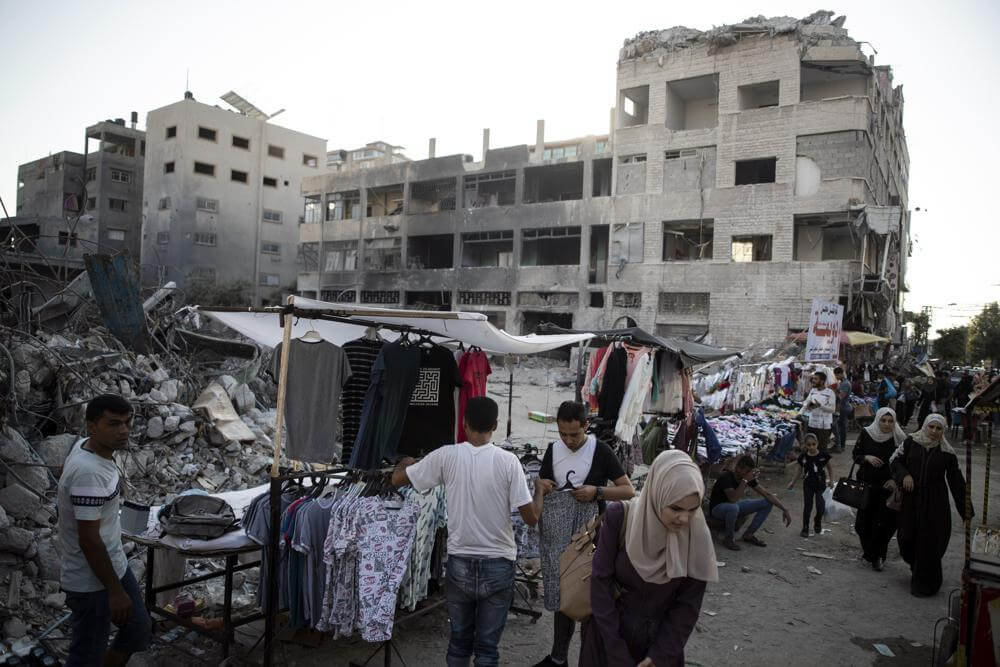The Israeli government has approved several measures to ease the crippling blockade on the Gaza Strip as hundreds of Palestinians have been staging violent protests along the Israel-Gaza border since last week. The protesters have been demanding that Israel lift the 14-year-old blockade.
On Wednesday, the Office of the Coordinator of Government Activities in the Territories (COGAT), the Israeli defence body in charge of civilian affairs in the Palestinian territories, announced the expansion of Gaza’s fishing zone and opening of the Kerem Shalom crossing for imports. Additionally, COGAT stated that it would increase the water supply into Gaza and the number of Gazan merchants allowed to enter Israel.
“It has been decided to expand the fishing zone in the Gaza Strip to 15 nautical miles, as well as to completely open the Kerem Shalom crossing for the passage of equipment and goods,” it stated. However, COGAT said the move was “conditional upon the continued preservation of the region’s security stability for the long term.”
A day before the announcement, Israeli officials allowed the import of material into Gaza to rebuild the enclave that was damaged during the 11-day war between Israel and Hamas in May. An Israeli official told The Times of Israel that truckloads of construction material entered the Strip. Bassam Ghabin, the director of the Gaza side of Kerem Shalom, confirmed that 30 truckloads of cement, 120 trucks of gravel, and 15 trucks of steel were part of the shipment that entered Gaza.
Israeli officials hope to calm the violent protests along the Gaza border through these gestures. Hundreds of Gazans have been protesting against Israel’s blockade of the enclave and demanded that Israel lift the siege and allow the reconstruction of Gaza. During the protests, incendiary balloons launched from Gaza into Israel’s south sparked several wildfires in the area. It has been reported that protesters threw stones at Israeli forces, who retaliated with tear gas, rubber bullets, and even some rounds of live fire. Casualties were also reported on both sides, including a 13-year-old Gazan boy and an Israeli police officer who was shot.
Responding to the violence, military chief Aviv Kohavi warned that Israel would not tolerate riots. “Calm and security will allow an improvement in civil conditions, but rioting and terror will lead to a strong response or operation,” he noted.
Earlier in August, Israel and Qatar reached an agreement to resume cash payments to families in Gaza. Israel blocked the payments during the conflict with Hamas in May. Under the deal, the funds will be directly transferred by the United Nations to bank accounts of Gazan families.
Israel and Egypt had imposed a blockade on Gaza since 2007 when the militant group Hamas seized complete control of the enclave by ousting the Mahmoud Abbas-led Fatah party after a short but violent civil war. Israel has cited Hamas’s activities, including the stockpiling and firing of rockets, to justify Gaza’s crippling sea, air, and land blockade that has exacted a massive toll on civilians who have been facing crippling poverty and an unemployment crisis.
Israel Approves Measures to Ease Gaza Blockade
As protests continue in Gaza over Israel’s blockade, the Israeli government has taken several measures to ease the blockade, including the entry of aid and building materials.
September 2, 2021

SOURCE: KHALIL HAMRA/ASSOCIATED PRESS
